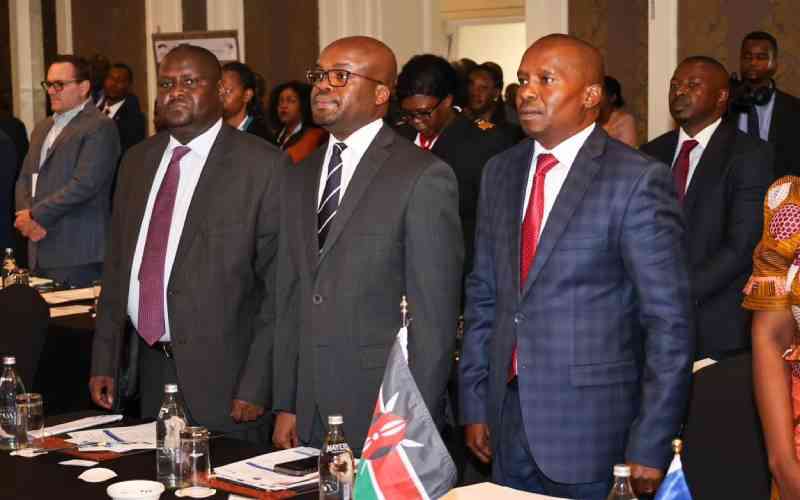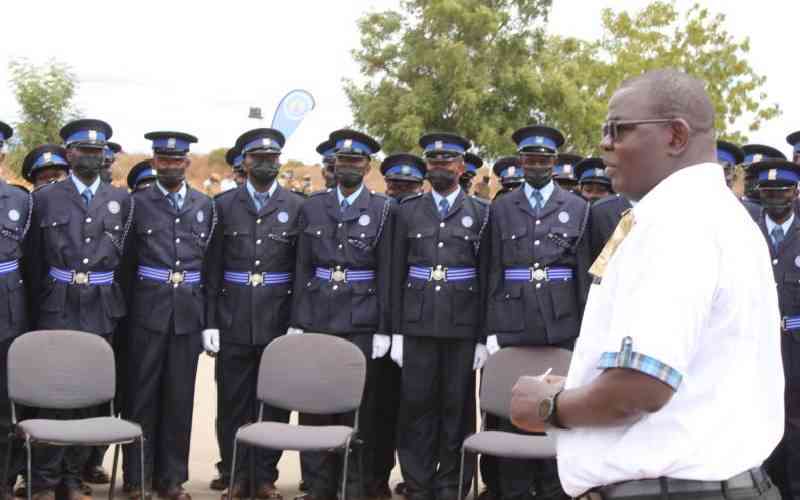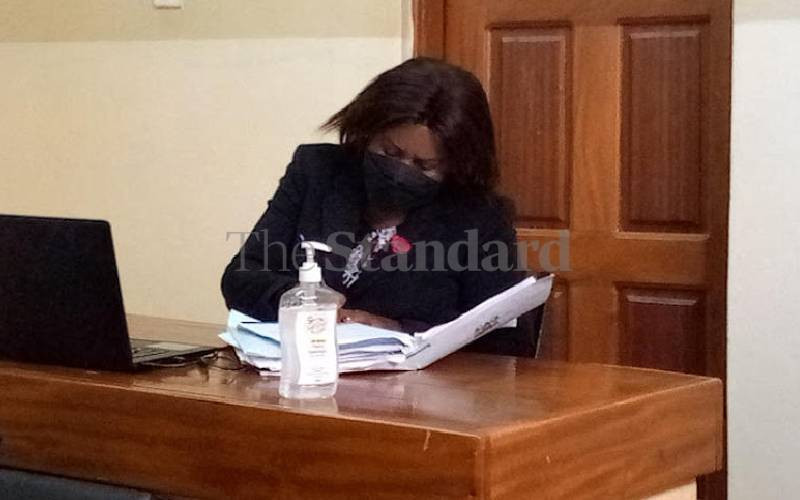The tourism sector is arguably one of the most critical industries in achieving economic development goals for many countries, particularly the developing ones.
Kenya is no exception. The tourism sector is one of the key sectors of focus under Vision 2030’s five-year, medium-term plan (2013 to 2017), which targets an annual GDP growth rate of 10 per cent .
Two years into the medium-term plan, the country is still struggling with a GDP growth rate of less than six per cent, closing at 5.3 per cent last year. The foregoing could partly be attributed to the ailing tourism sector and the security status of the nation for the past two years.
The significance of the tourism sector cannot be over-emphasised. With a land mass that includes more than 500kms of coastline along the Indian Ocean, the idyllic Lake Victoria and Turkana, and the awe inspiring Great Rift Valley, to name a few, Kenya has treasures that would attract more tourists globally.
After agricultural products that include tea and flowers, tourism is the largest foreign exchange earner in Kenya’s diverse economy, contributing nearly 10 per cent of the GDP. It is no mystery that the sector has tremendous merits among them - increased foreign exchange receipts, balance of payment, employment, Government revenues and increased economic activity in general.
Over the past two years, the tourism sector has descended into the loss making territory, owing to the insecurity. According to the 2015 Economic Survey Report, tourism earnings declined by 7.3 per cent, from Sh94 billion to Sh87.1 billion. In addition, the number of international visitor arrivals and bed nights occupied decreased by 11.1 per cent, from 1.52 million to 1.35 million and five per cent, from 6.6 million to 6.3 million respectively.
International conferences held decreased by 19.4 per cent to 241 in 2014 from 299 in 2013. However, local conferences increased marginally by eight per cent - from 2,849 in 2013 to 3,077 in 2014, thanks to the drastic measures introduced in June 2014 to save the ailing sector.
Terrorist attacks in Kenya, notably the Westgate Mall and the Garissa University attacks have had a substantial impact on the tourism sector. While official Government statistics show a significant decline in the sector’s performance, it is impossible to know the true size of the economic crater resulting from the attacks.
Investors were optimistic that the sector would bounce back shortly after the Westgate Mall attack. However, barely two years after the mall attack, Kenyans and the international community woke up to the sad news of even a more severe attack at Garissa University.
These attacks have left the sector worse off, begging for drastic measures to be put in place by the Government to save the sector from collapse. In the 2014-2015 Budget Statement, the Government introduced a number of measures aimed at boosting the tourism sector among them: tax refunds for the players in the sector and exemption of expenditure on vacation trips to destinations in Kenya. Going by the turn of events, however, the challenges bedeviling the sector are still real, largely attributable to terrorism-related risks. While it is impossible to reduce the threat of terrorism to zero, the Government is faced with the challenge of addressing the risk to convey an image of trust and security to the public and the international community.
According to authors Burns and Slovic, the general public tends to see terrorism as a political concern that rests within the purview of government. Therefore, it falls primarily to the State to reassure the population, as well as foreign tourists and expatriates, that the Government and security forces are well equipped to strategically deal with the threat of Al-Shabaab.
If the response by the security personnel to the recent attacks is anything to go by, then Kenya needs to invest more in security. The country is too large and the potential targets are too numerous to guard all of them. This calls for a more responsive intelligence unit, well equipped police and military forces as well severe punishment for the perpetrators of terrorist acts, a step that the Government has already taken.
It is worth noting that insecurity is not only a threat to international investors but also a threat to local investors and the general economic activity in the country. Majority of Kenyans and the international community are expecting an inspirational 2015-2016 Budget, largely moulded to save the ailing tourism sector as well as focus on strengthening the security.
A strong partnership between the State and the tourism sector, along with better marketing at home and abroad is encouraged. This can build resilience in the Kenyan marketplace and instill confidence in Kenya’s security and stability now and in the years to come.
Stay informed. Subscribe to our newsletter
 The Standard Group Plc is a
multi-media organization with investments in media platforms spanning newspaper
print operations, television, radio broadcasting, digital and online services. The
Standard Group is recognized as a leading multi-media house in Kenya with a key
influence in matters of national and international interest.
The Standard Group Plc is a
multi-media organization with investments in media platforms spanning newspaper
print operations, television, radio broadcasting, digital and online services. The
Standard Group is recognized as a leading multi-media house in Kenya with a key
influence in matters of national and international interest.
 The Standard Group Plc is a
multi-media organization with investments in media platforms spanning newspaper
print operations, television, radio broadcasting, digital and online services. The
Standard Group is recognized as a leading multi-media house in Kenya with a key
influence in matters of national and international interest.
The Standard Group Plc is a
multi-media organization with investments in media platforms spanning newspaper
print operations, television, radio broadcasting, digital and online services. The
Standard Group is recognized as a leading multi-media house in Kenya with a key
influence in matters of national and international interest.








